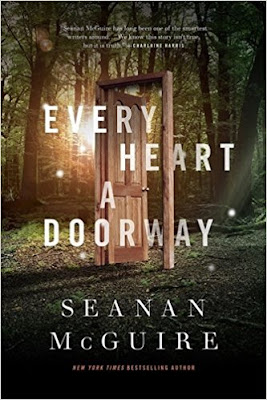Science Fiction Annotation: How to Live Safely in a Science Fictional Universe by Charles Yu
How to Live Safely in a Science Fictional Universe
By Charles Yu
Synopsis:
Charles Yu is a time machine technician. He lives in his one-person TM-31 Recreational Time Travel Device with his dog, Ed (who may or may not exist) and TAMMY, his computer, who has low self-esteem and is completely in love with him (and, when Charles is honest with himself, he reciprocates). Charles's life is, put succinctly, non-existent. He travels through time, space, and dimensions, fixing the problems of time travelers who have broken their worlds through paradoxes and bad choices, but when it comes to Charles's own life--he remains inside the TM-31, never really connecting. Until he does exit, one day, to visit his mother in her sad, digitally time-looped existence. On his return, he witnesses the TM-31 opening, and he sees himself, future Charles, stepping out. Panicked, Charles shoots himself, because he has to fix the paradox. The now-dying version of Charles hands his shooter a book and says, "It's all in the book. The book is the key." Present-Charles runs, with Present-Ed and Present-TAMMY, through time and space both away from and ever-toward his future of getting shot by his past-self. On the way, he inspects the book given to him, How to Live Safely in a Science Fictional Universe, and tries to discover a way out of his own time-loop. The answers to his questions are quietly revealed as he discovers his real quest--finding his father, helping his mother become The Woman She Should Have Been, living his life, writing this book. Throughout his quest, he considers what it means for him--and his family--to exist, to truly exist, and so goes ever-onward towards his future--and his past.
Science Fiction Characteristics¹:
- Explores moral and intellectual questions against a setting outside of everyday reality.
- Setting invokes otherness of time, place, and reality.
- Set in future, other universe, tied-partially to Japan (area called Lost Tokyo-1)
- Style and language reflect intellectual nature
- Style of writing is very high-intellect, with diagrams and philosophical questions presented throughout
- Tone is dark at times, but has a light-comic, almost self-deprecating feel throughout
- Characters underscore issues
- Different ideas of Charles's mother, different ideas of Charles's self help to examine the idea of existence and the question of what it means to really live
- Ideas are emphasized over action, so story unfolds at leisurely pace, picking up at times when more action is introduced (the shooting).
My Take:
This book is something that has to be experienced. I will never stop recommending people read this book, as it exemplifies literary science fiction at its finest. The questions presented really make one think, but it keeps itself in check with some lighter feels. The relationships that are presented (there are few) are so strong, yet so in keeping with the ideas of the book and the question of existence, that they resonate long after you finish the book. While it says "Science Fictional Universe" in the title, and it does represent the Intellect Genres something fierce, it is so much more than that. This is meta-science fiction, and meta-literature as well. Yu knows exactly what he is doing in his writing, and I cannot recommend his work highly enough. In case this author's name sounds familiar, you might also recognize him as one of the writers for HBO's Westworld.
Read-A-Likes:
Saricks suggests²:
- John Crowley
- Douglas Adams
- Michael Swanwick
- Elan Mastai's All Our Wrong Todays
- Sean Ferrell's Man in the Empty Suit
- Kage Baker's In the Garden of Iden
____________________________________________________________
¹Saricks, J. (2009). The readers' advisory guide to genre fiction, 2nd edition. Boston, MA: American Library Association. 245-250.
¹Saricks, J. (2009). The readers' advisory guide to genre fiction, 2nd edition. Boston, MA: American Library Association. 245-250.
²Saricks, J. (2009). The readers' advisory guide to genre fiction, 2nd edition. Boston, MA: American Library Association. 253.




Your synopsis and take on this book makes me intrigued! As I was reading your synopsis, Douglas Adams did pop into my mind, and I was amused to see him appear within the readalikes - I have a few people in mind who I'd recommend this book too now, if I don't get around to reading it myself. Did you find there were any glaring plot holes? I know some time travel books don't really address all aspects or intricacies that well, and I find myself frustrated. I'm guessing not, since you enjoyed the book so much, but it's something I try to watch out for!
ReplyDeleteWhat wonderful annotation! You did an excellent job summarizing a complex plot and examining the appeals. Full points!
ReplyDelete